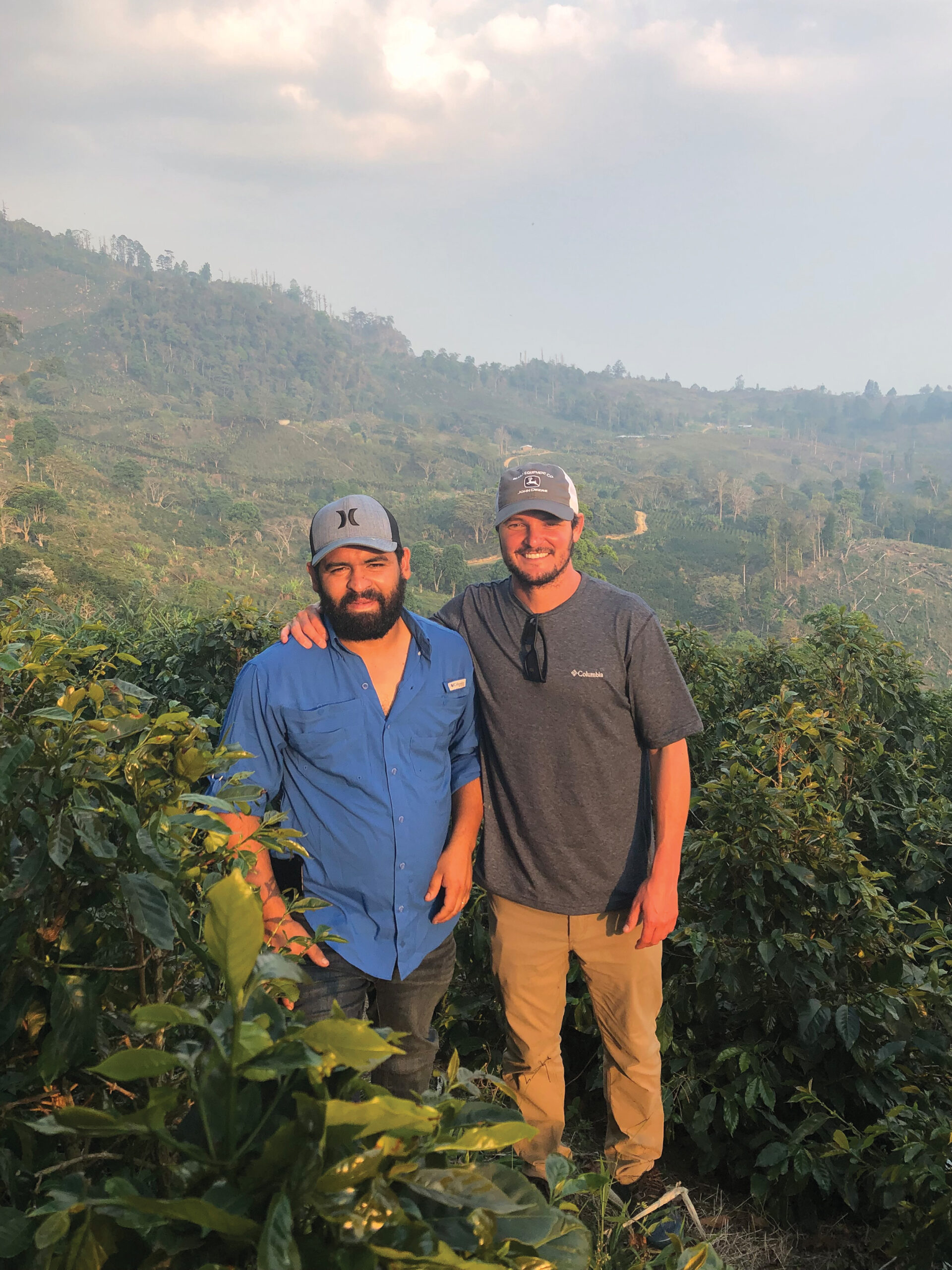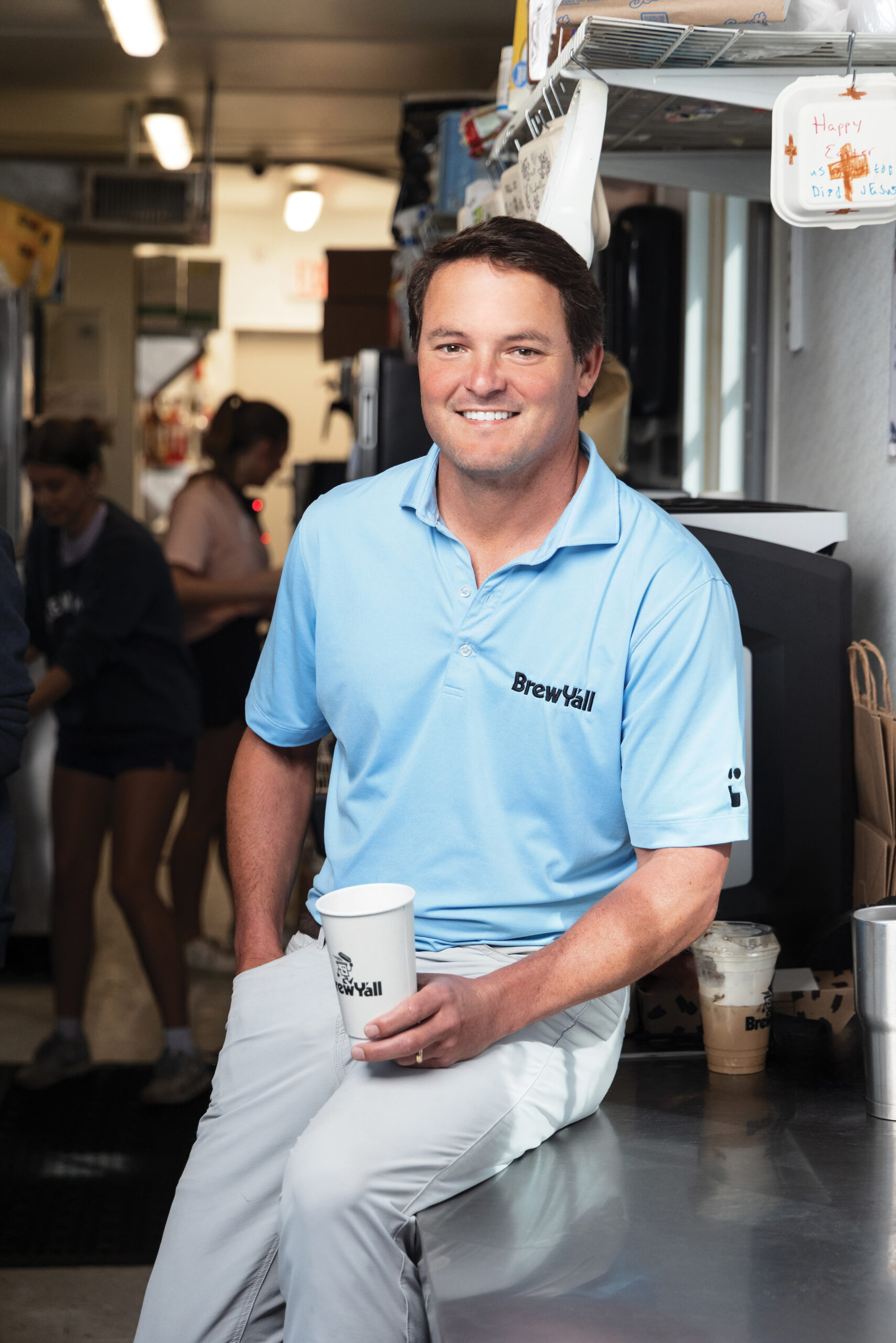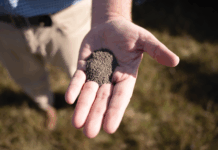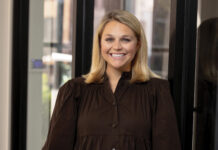
Richard Sanders didn’t know the first thing about coffee. His background in commercial flooring had little overlap with it beyond the office coffee pot. It wasn’t until he had a lunch-break conversation at the Grand Hotel with subcontractor Cristobal Cerranza that he began to imagine something wild and improbable: starting a coffee business in a Central-American country.
Cerranza, a fourth-generation coffee farmer from Honduras, spoke about bean production with the kind of authority that comes from experience, and Sanders was intrigued. Cerranza said he had considered selling Honduran coffee in the United States, but he just didn’t know where to start. Sanders, who knew Cerranza to be an earnest and honorable man, offered to help him figure it out. Before long, they were running numbers and sketching plans for a coffee-importing business based in Honduras.
Even though he drank it every morning, Sanders wasn’t exactly a coffee connoisseur. “I just drank the cheap stuff to wake me up,” he says. “I didn’t know the first thing about coffee or what I was getting into. But we started researching and trying to figure out how we were going to start a business in a third-world country. It’s hard enough to do it in Mobile, Alabama!”
A longtime friend and former Special Forces Green Beret joined as a partner while Sanders and Cerranza sought buyers. After striking out with roasters along the Gulf Coast, the newest team member reached a contact in New Orleans: another veteran and CEO of a coffee roasting company. He liked their idea of forming a co-op for Honduran farmers but wouldn’t commit to buying without seeing the operation. Which would have been fine, except the business didn’t really exist yet. Undeterred, Sanders and his team invited the CEO to Honduras, though Sanders admits he couldn’t have found it on a map. “But you fake it ‘til you make it, right?’” he says.
They planned a trip to Honduras and booked a hotel in San Pedro Sula, then the city with the highest murder rate in the world. Sanders had his concerns, but traveling with a former Green Beret and a local eased his mind. He felt even more at peace once they reached the finca. “When we get to this farm on the mountain, it’s absolutely stunning,” says Sanders. “The views are beautiful, and the people are friendly. As you can imagine, they’re probably some of the poorest people in the world. But they were such kind, humble, welcoming people. It was great.”



Each day in Honduras brought new challenges. Once, an outdated GPS sent them into a banana plantation guarded by men with guns. When they considered stopping for directions, the former Green Beret insisted they keep driving, and the guides nervously asked if anyone’s kidnapping insurance was up-to-date. “I was like, ‘I don’t have kidnapping insurance!’ I was freaking out,” says Sanders. “I have a wife and three kids, and I thought to myself, ‘What am I even doing out here?’ I just sat there praying the Our Father and Hail Mary over and over again.”
The mountains were perilous. Roads were narrow and in disrepair, made worse by rain. “If you’re an inch to the right, you’re toast,” says Sanders. “A couple of times I felt like the back right tire was going to go off the mountain.”
Even places that felt safe weren’t. Driving along a country road, Sanders noticed a mansion unlike anything else in Honduras. It was a palace on the outskirts of poverty. Cerranza confirmed Sanders’ suspicions that it was the home of a cartel boss, and when Sanders tried to take pictures, Cerranza reacted with alarm. “He said that if we were pulled over by anybody, including the police, the first thing they would do would be to search our phones,” he said. “If we had pictures of the boss’s house, we would disappear. There’d be no getting out of it.”

After returning to the United States, Sanders faced setbacks. His newest business partner had decided to pull out to focus on other things he had on his plate at the time, and his potential buyers said his operation wasn’t developed enough to sustain their needs at that moment. Still, he pressed on, learning harvesting, drying, trading, import fees, regulations and navigating officials demanding cuts of profits.
Despite his love for the coffee industry, the hardships eventually took their toll, and Sanders had to step away from the business.
“I basically got to where I broke even and handed over the reins to Cerranza,” Sanders says. “I told him, ‘This is your dream, and I think you should run with it.’ He’s built a really good thing, and I’m so happy for him.”
Though no longer involved with Honduran coffee production, Sanders hasn’t left the industry altogether. In 2024, he co-founded Brew Y’all, a local drive-thru coffee shop in Mobile that offers a hometown on-the-go alternative to corporate chains.
“I’ve been in the coffee business for seven years and haven’t made a dollar,” Sanders laughs. “I don’t think you can be in any industry, especially one like this, for so many years without having the utmost passion for it. And I absolutely do.”





